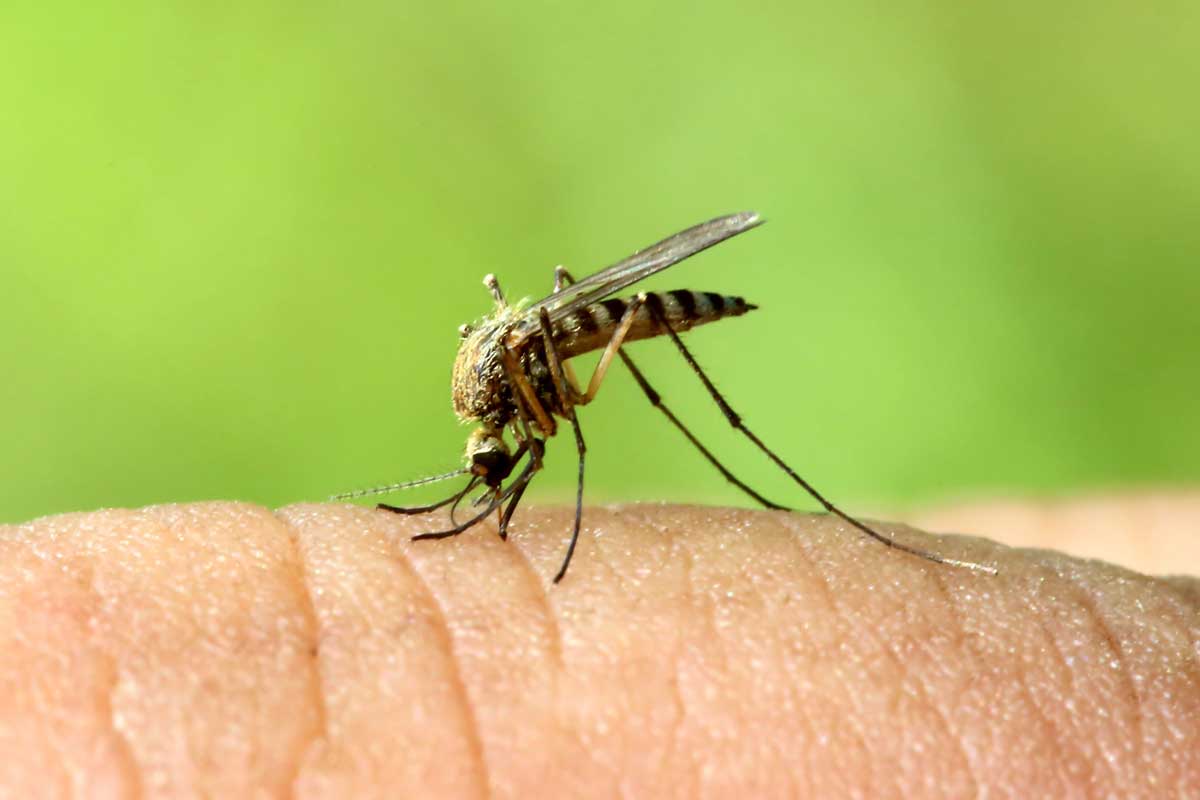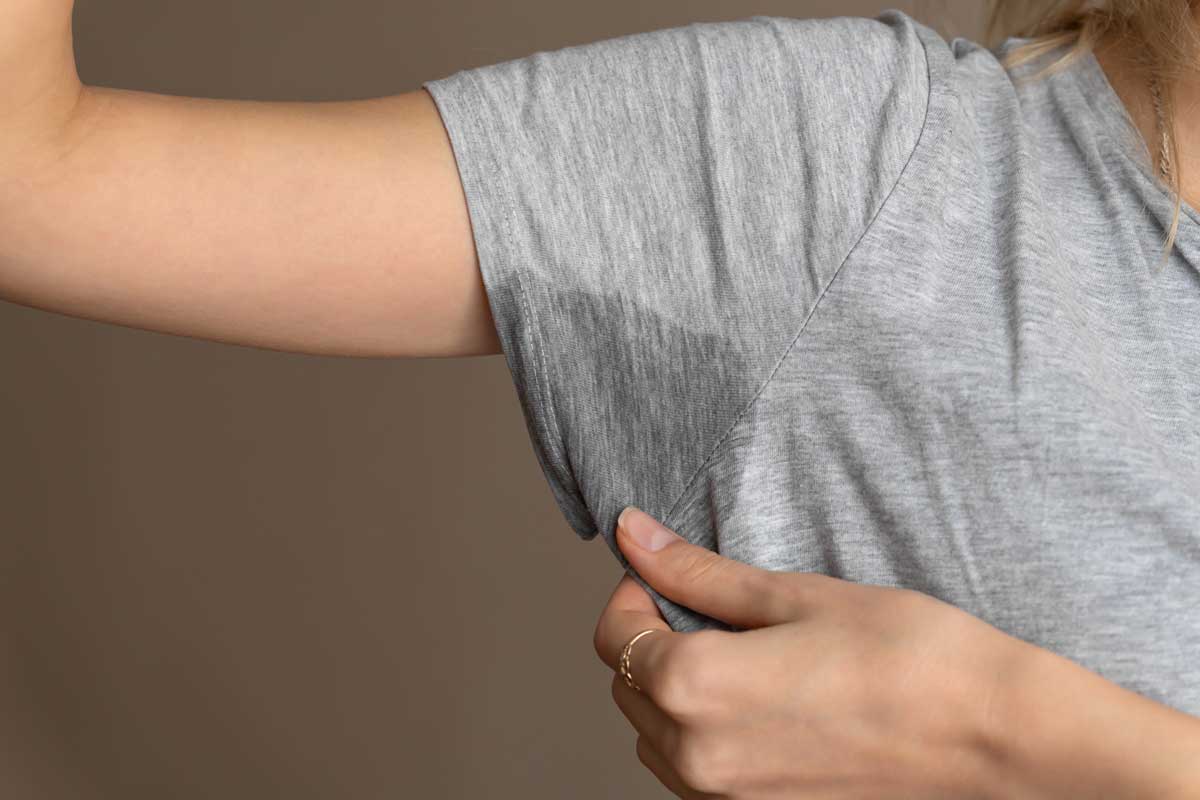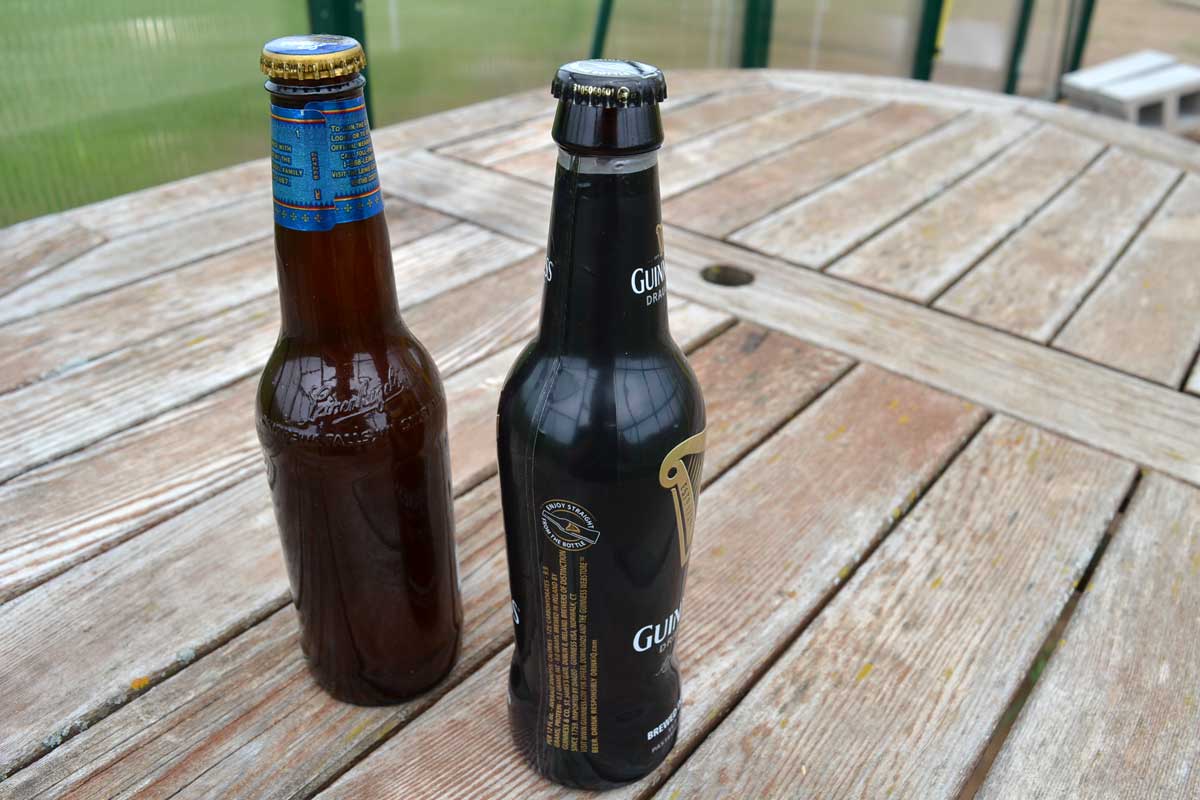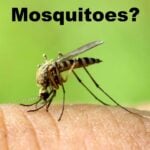What Attracts Mosquitoes? (Blood Types, Colors, and More)
This post may contain affiliate links. Read my full disclosure here.
Have you ever wondered why some people seem to attract mosquitoes more than others? Scientific research has identified several key factors that make certain individuals more appealing to these bloodsucking insects. We’ll share which factors (such as blood type and clothing color) help attract mosquitoes, and how to avoid them (if possible).
Mosquitoes are notorious pests, known for their itchy bites. These insects are not just nuisances—mosquitoes are vectors for numerous pathogens that can cause serious health issues. Yellow fever mosquitoes (Aedes aegypti) are known for their role in spreading mosquito borne diseases like malaria, dengue, Zika virus, and West Nile virus.

Table of contents
What Attracts Mosquitoes?
Only female mosquitoes bite, because they need to drink your blood to develop and lay eggs. You’re a nice hot lunch. (The males drink flower nectar.)
1. Blood Type Matters
One surprising factor that influences mosquito attraction is blood type. Studies suggest that individuals with Type O blood are more likely to be bitten than those with Type A or B.
Mosquitoes can detect certain chemical markers secreted through the skin that indicate blood type, and research indicates that Type O individuals emit markers that make people more attractive to mosquitoes. In contrast, people with Type A blood tend to be the least attractive to these insects.
2. Carbon Dioxide Emission
Mosquitoes rely on their keen sense of smell to locate potential hosts, and one of the strongest cues they use is carbon dioxide (CO2). Every time we exhale, we release CO2, which mosquitoes can detect from distances of up to 50 meters.
People who produce more CO2, such as pregnant women or individuals with larger body masses, are more likely to attract mosquitoes. This explains why mosquitoes prefer adults over children and why they seem to swarm around people who are exercising or breathing heavily.

3. Body Odor and Sweat
Mosquitoes are also drawn to specific compounds found in human sweat and body odor. Human skin emits a variety of volatile organic compounds (VOCs), which mosquitoes can detect using their sophisticated olfactory receptors.
Certain bacteria that live on our skin break down sweat components, producing scents that mosquitoes find particularly appealing. Some people naturally produce more of these compounds, making them more likely to become a mosquito magnet.
4. Lactic Acid and Carboxylic Acid
Lactic acid, a compound produced by muscles during physical activity, is another strong mosquito attractant. When we exercise, our bodies produce more lactic acid, which is then released through the skin. This makes physically active individuals prime targets for mosquito bites. Additionally, body heat increases with exercise, and since mosquitoes are also drawn to warmth, a combination of heat, sweat, and lactic acid makes for an irresistible invitation for these insects.
Would you like to save this?
Recent studies have also highlighted the role of carboxylic acids in attracting mosquitoes. Carboxylic acids are naturally produced by the skin and contribute to body odor. Researchers have found that individuals who produce higher levels of carboxylic acids are more attractive to mosquitoes. This discovery further underscores the complexity of mosquito attraction and how multiple factors play a role in determining who gets bitten the most.

5. Alcohol Consumption
Studies have shown that drinking alcohol can increase mosquito attraction, possibly due to changes in body chemistry and increased skin temperature. Additionally, alcohol raises body temperature and can cause increased sweating, both of which further attract mosquitoes. Even a single alcoholic beverage has been shown to make individuals more likely to be bitten.
6. Clothing Color
Mosquitoes use vision as well as scent to detect their hosts, and darker colors make people stand out more to them. Colors such as black, navy blue, and red are particularly attractive to mosquitoes, while lighter colors, like white and pastel shades, are less appealing. Wearing light-colored clothing can reduce the likelihood of being targeted by mosquitoes, especially in areas with high mosquito activity.
Reducing Your Attractiveness to Mosquitoes
Understanding what attracts mosquitoes can help you take measures to avoid bites. Here are some tips to reduce your appeal:
- Use insect repellents containing DEET, picaridin, or oil of lemon eucalyptus.
- Wear light-colored clothing and cover exposed skin to prevent mosquito bites.
- Avoid exercising outdoors at dusk and dawn when mosquitoes are most active.
- Use fans, as strong air currents make mosquito landings more difficult.
- Eliminate standing water around your home to reduce breeding sites.
By being aware of what attracts mosquitoes, you can take steps to minimize bites and reduce your risk of mosquito-borne illnesses.
For more information, check out:
Mosquito Repellent Plants (and How to Use Them)
How to Get Rid of Mosquitoes – Effective Natural Solutions
Natural Mosquito Repellents – Recommendations & Recipes
Mosquito Bite Relief – Home Remedies to Stop the Itch

This article is written by Laurie Neverman. Laurie and her family have 35 acres in northeast Wisconsin where they grow dozens of varieties of fruiting trees, shrubs, brambles, and vines, along with an extensive annual garden. Along with her passion for growing nutrient dense food, she also enjoys ancient history, adorable ducks, and lifelong learning.

